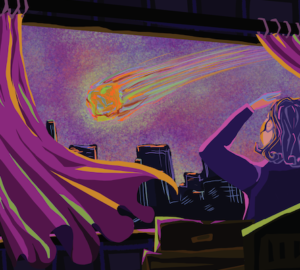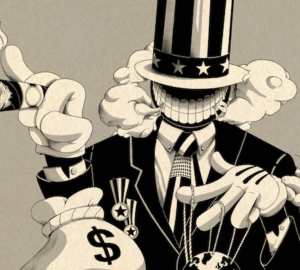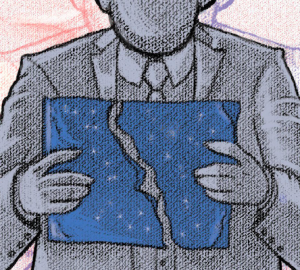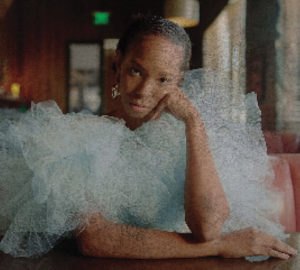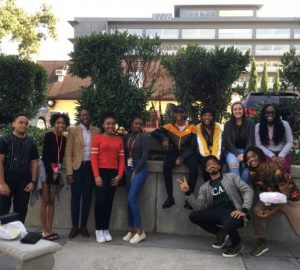Changing Perspectives
With the recent focus on holding perpetrators of sexual violence accountable, is the tide finally shifting towards a society trying to end the cycle of abuse?
WRITTEN BY ANYA HABER
GRAPHIC DESIGNED BY EMMA DAKIN
Since Oct. 5, 2017 when allegations first surfaced against movie mogul Harvey Weinstein, more than 120 women, according to USA Today, have publicly stepped forward to accuse the film producer of sexual assault and harassment. Since the initial report hit, the proverbial floodgates have burst. The toppling of such a legendary figurehead incited a chain reaction; in the last several months, more than 60 high-profile men have been accused of sexual misconduct and have been subsequently suspended, fired or forced to resign. Among these are comedian Louis C.K., actor Kevin Spacey, fashion photographer Terry Richardson, Senator Al Franken and Congressman John Conyers Jr.
But what do these recent scandals mean for sexual assault victims? Is this the long-overdue breakthrough society needs to provoke meaningful reform, or will history remember this as an isolated event that only briefly shook the status-quo?
The systematic cycle of abuse, where both women and men are sexually harassed by their superiors yet keep quiet for fear of retaliation, is rampant and extends far beyond the public eye of Hollywood or politics. We see it happen every day in restaurants, when waitresses and bartenders plaster on forced smiles while patrons holler sexually demeaning phrases, “accidentally” grabbing them or worse, because they both know that the server is at the mercy of the patron for a living wage. In lower-paid occupations where employees can easily be replaced, a victim of sexual abuse can lose their livelihood by speaking up, especially when the perpetrator is in a position of authority. “For decades, women found that this [harassing] behavior often was the price of coming to work, it was entrenched with high performers getting a free pass,” said Noreen Farrell, executive director of Equal Rights Advocates, an organization that offers legal help on matters related to the equal treatment of women.
With widespread sexual impropriety across all socioeconomic classes, it’s no surprise that American culture as a whole is flawed when it comes to “rape culture.” Frequently, the blame of sexual assault is turned toward the victim rather than the perpetrator, trivializing the seriousness of sexual violence with all too common claims that “boys will boys” and “she was asking for it.” Statistics back this up: according to the Rape, Abuse and Incest National Network (RAINN), the largest organization in the United States dedicated to combating sexual violence, an American is sexually assaulted every 98 seconds, yet only .6% of offenders ever face jail time. Some might say the low arrest rate is a consequence of underreporting, as only 23% of sex-related crimes were reported to the police in 2016 according to the Bureau of Justice Statistics, but that’s an incredibly narrow view on a complex societal problem. The real question is why don’t victims want to report rapes? The unfortunate truth is that many may feel re-victimized or shamed when reporting, or feel as though going to the authorities won’t make a difference.
However, something about this time feels optimistically different. The women who’ve openly accused Weinstein and others of sexual misconduct are not just believed, they are celebrated for their bravery, most notably as the “Silence Breakers” in TIME Magazine’s 2017 Person of The Year.
Will this momentum last? Sallie Krawcheck, former CEO of Smith Barney and Merrill Lynch Wealth Management and a victim of sexual assault, thinks so, thanks to technological and social innovations that have made global interconnection possible thus far. “Women have a means today to tell these stories and to reinforce each other’s stories and support each other’s stories and support each other in a way that didn’t exist when this happened to me,” said Krawcheck. While working at the now-defunct Wall Street investment bank Salomon Brothers, she would arrive at work, greeted every day by a pile of X-rated images of her male colleague’s genitalia atop her desk. Not just once or twice, but every day. Unsurprisingly, the “old boys club” of high finance was fraught with socially tolerated sexual harassment that women had to endure in order to survive in the male-dominated industry.
“I don’t think we [should] underestimate how much of an impact is being made by the way in which women can just speak out about their experiences,” said journalist and feminist activist Caroline Criado-Perez. “Until the internet came along, we just weren’t having these conversations about what it’s like to be a woman, what it’s like to walk down the street and be harassed and cat-called. We didn’t know about the idea of everyday sexism.”

One such example is the the #MeToo hashtag, initially started by social activist Tamara Burke and re-popularized by actress Alyssa Milano in response to the Weinstein scandal. Used by 4.7 million different individuals on Facebook alone within the first 24 hours of it going viral, according to CBS News, the hashtag flooded social media with such fervor that made it depressingly clear that sexual assault did not discriminate, whether it was your best friend’s mother, your wide-eyed colleague or your high school’s star football player. The movement highlighted the number of people who have experienced sexual assault or harassment, and offered an opportunity for connection.
Publicly identifying these predators, forcing them off their pedestals and out of their prestigious positions from which they comfortably abused both men and women alike is only the first step. Although legal investigations against Weinstein have commenced, precedent shows that too often perpetrators of sexual misconduct pay for their actions through private settlements, rather than jail time. For real change to commence, men need to see this as a serious issue and listen to the perspectives of the abused. Not only that, but our legal system needs to actively discourage such behavior, including settlements which effectively sweep the wrongdoings of these powerful individuals under the rug, throwing money at the problem in exchange for silence.
However, with the surge of awareness made possible through social media and the 24-hour news cycle, elected officials, some of whom have been exposed themselves as predators as a result of the Weinstein scandal, can’t ignore the issue any longer. As we speak, bills are being written to deter behind-closed-doors sexual harassment from happening. We are certainly at a turning point. Only time will tell if these recent scandals will be just another mark on the seemingly endless cycle of rape culture, or if it will be a catalyst for positive and meaningful reform for our legal system, corporate culture and social understanding.





